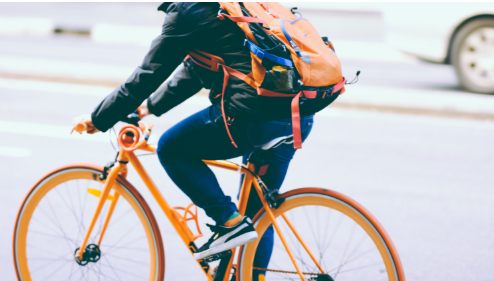Badge support Skills Challenge Award

Requirement one asks Scouts to take part in physical activities for four to six weeks, measuring their progress throughout. Any activity where the Scout will develop their fitness level whilst being able to show improvement is acceptable, and activities can be done as a whole Troop or as individuals. Remind them why it’s important to warm up and cool down before and after exercise, and ask them to keep a record showing their improvement. They could get creative and design their own exercise log - you can see examples of exercise logs on Pinterest.
For requirement two, Scouts have to demonstrate an understanding of healthy eating and sleep patterns. To teach your Scouts about sugar, try this ‘rethink your drink’ experiment. Simply purchase 10 different drinks that are approximately the same size, including water, milk, juice and fizzy drinks. Ask your Scouts to estimate how many teaspoons of sugar are in each bottle, keep a note of their guesses, and then reveal the answers by looking at the labels. Are there any unexpected results? Why is it important to limit our sugar consumption? Are certain sugars better for our body than others? These are all interesting questions to discuss, and Scouts may be surprised by the outcome of the experiment.
To encourage your Scouts to understand why sleep is so important for health, you could ask them to keep a sleep diary for a week, measuring the amount of sleep they get each night, and the factors that influence how well they sleep each night. Do they notice any key differences on different nights? Do they notice a difference in how they feel when they get more or less sleep? Is there anything that keeps them awake at night? To understand the science behind sleep, you could invite an expert to come and speak to the section. Check to see if your local university is conducting any research on sleep that could be adapted for a younger audience, and ask around to see if there are any parents/carers working in a medical profession who might want to come in and do a talk.
For requirement three, Scouts learn all about the effects smoking, alcohol and drugs can have and the dangers connected to each. Services like the NHS and Police often offer programmes that are aimed at young people around these areas, and could be invited in to run an evening. It is best practice to let parents/carers know that you will be covering these sensitive topics. We recommended the following websites to help you talk to your young people about tricky topics: www.talktofrank.com, www.themix.org.uk/drink-and-drugs, www.scouts.org.uk/lifeissues.
For requirement four, Scouts must master at least four household skills. If your Scouts are keen to take part in the cookery option for this part of the badge, why not host a ‘Come dine with me’ themed evening at your Scout meeting place? Assemble your Scouts into groups to produce a meal, dividing the tasks between themselves, and get them to rate each other’s finished creations just like the contestants do on the popular TV show. If you don’t have cooking facilities at your Scout meeting place, you could host a competition during your camp cooking session, or host a special BBQ at a local park or community centre.
To amp the competition up, you could offer a token prize or invite a local celebrity or senior member of your District along to help with the judging process. If Scouts also do the washing up afterwards, they automatically complete two of the five requirements for this part of the badge. With that in mind, hosting a dinner party is therefore an efficient way to kick-start everyone’s progress on the award, and to encourage teamwork within the section.
Whichever activities they choose to do, remember to let your Scouts run with their imaginations throughout. The badge is a great opportunity to encourage independent thought, rather than relying too heavily on instructions, and it may even unveil some hidden talents within the section.
Please sign in to leave a comment.

Comments
0 comments